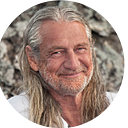Listening Observing: Moving from Restriction to Freedom
Mark Whitwell | Heart of Yoga
As Yoga teachers, we learn to listen. We learn to see and feel. We learn to love and respect the utterly unique qualities of each person. To understand them and be responsive to their needs. It is an active engagement of each person.
There is a common assumption that listening is the same as hearing, which implies that listening is instinctive and therefore not something we have to worry about. Hearing is a passive process that requires no effort on our behalf at all. Listening, however, is much more active. It is a skill that needs to be learned and practiced like any other. The key to effective listening is to participate physically and mentally, be alert and focused, and to listen with empathy and objectivity. When someone feels listened to, they feel respected and their trust in the other person is increased. They will more likely listen to you better if you listen well to them.
We learn to understand the gift and gifts of each person. To feel the mystery of each one, indeed the mystery of the All in all, in every leaf, in every bee, in every “thing”. We learn to listen. To observe. We learn also to see what restricts each person and guide them in their unique directions of restriction to unrestricted.
Our Yoga is the practical response to the feeling of restriction in the body or mind, whether within our system or in our physical circumstances. Krishnamacharya’s statement is that “dukha [restriction] is the unavoidable motive of practice.” Clearly Yoga is not just a thing for your muscles, or something you can progressively get attainments in. It is your participation in this power of the cosmos that you are right now, reading this, whoever you are and however you are feeling. Yoga is your whole-body prayer to the Life that is living you, beating your heart and moving your breath and sex. Look around you and you will see that everyone is indeed this power, each person a natural phenomenon just like a tree or flower, the beauty of nature, and enough to bring us to our knees, who ever they are, whatever thoughts or words are coming out. Your Yoga and their Yoga is making love with life.
We teach Yoga as we have experienced it ourselves. Not to duplicate our practice but adapt it to the needs of each person according to their body type, age, health and cultural background.
Yoga does not uphold ludicrous, unattainable goals. Everything is in the grasp of the practitioner. We enjoy Yogs as a discipline of pleasure, attitude, thought and. feeling. By these means we enhance the functioning of the whole system. By removing everything that is unnecessary, the natural energy of life, pranashakti, flows.
Known to unknown:
We know how to stand upright, but it is unknown how to stand on our head at first. However, we do not immediately rush into the unknown! Like a journey there must be a direction, preparation and then starting from where we are and taking it step by step. Introducing for example, unusual asana too soon can put the practitioner off, not to mention potentially injure them. So it is a gradual progression from restriction to unrestriction. It is a careful process to introduce the tools of Yoga that help. We do not rush. You cannot take heaven by storm. Most of all we listen. We look for the signs and introduce the Yoga Tantras with practices that each student can actually do. That is be successful in this very day.
Read More:
